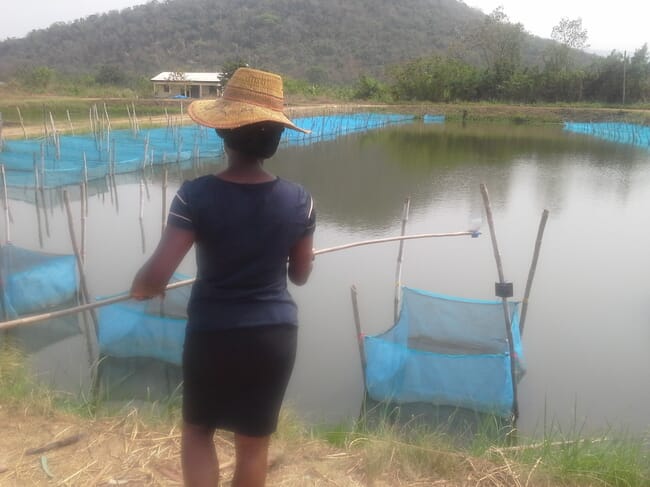The project also aims to reduce fingerling mortality rate by 50 percent for at least 400 small-scale pond and cage farmers (including women and youths) in Volta, Eastern, Ashanti and Brong Ahafo.

Titled “Accelerating aquaculture development in Ghana through sustainable Nile Tilapia seed production and dissemination” (TiSeed) the project was launched on February 19 at the Water Research Institute, (WRI), Council for Scientific and Industrial Research (CSIR), in Accra.
It is being implemented by a consortium of international and local research institutes, led by The International Food Policy Research Institute (IFPRI), supported by the CSIR-WRI, KIT Royal Tropical Institute in the Netherlands, and WorldFish. Other partners are the Fisheries Commission (a government institution) and two private hatcheries - S-HOINT and Crystal Lake.
“Breeding and research in aquaculture have stalled in Ghana, resulting in poor quality seeds and low farm productivity and profitability. IFPRI and its partners have been awarded this research grant to help the country improve the fundamental issues in the tilapia seed system,” said Catherine Ragasa, Project Lead and Research Fellow at IFPRI.
“We bring diverse and complementary expertise into the project: from breeding, hatchery management, fish health, food safety, water quality, and seed distribution to information and communication technology, sociology, and economics to promote sustainable and profitable tilapia production. We also plan to rigorously test and evaluate the impact and effectiveness of different approaches in fish seed distribution and extension services,” she added.
Seth Koranteng Agyakwah, officer-in-charge at the Aquaculture Research and Development Centre (ARDEC) of CSIR-WRI, and the lead of the local consortium partners in Ghana, added that the project will “help in generating and disseminating scientific data on the quality of tilapia seed, monitoring and coordinating the industry players, and assessing and developing new and much improved tilapia strains that are productive, safe, resilient, and disease-resistant”.
The Director of CSIR-WRI, Mike Osei-Atweneboana, added that the project “is timely as we face serious challenges in the sector that has huge potential for development”.
The project will be working with key players in the industry, who were also present during the pre-proposal and launch meetings, including Raanan Fish Feed West Africa Ltd., Aller Aqua Feed Ghana Ltd., Ghana Aquaculture Association, National Fish Pond Farmers Association, Flosell Farms, West African Fish Ltd., National Aquaculture Technical Committee, the Environmental Protection Agency, among others. The project is a research grant funded by the Government of Netherlands and the CGIAR Research Programs on Policies, Institutions and Markets (PIM) and Fish Agri-Food Systems (FISH).
In his final comments, Michael Arthur-Dadzie noted that: “While the focus is on tilapia seed and the research grant is modest, this project has a huge potential to attract greater interest in the sector from donors and investors, and that the availability of improved scientific data will provide a foundation for policy and regulatory reforms in Ghana. The Fisheries Commission is committed to take up the recommendations of the study and lessons from the project into our operations.”


